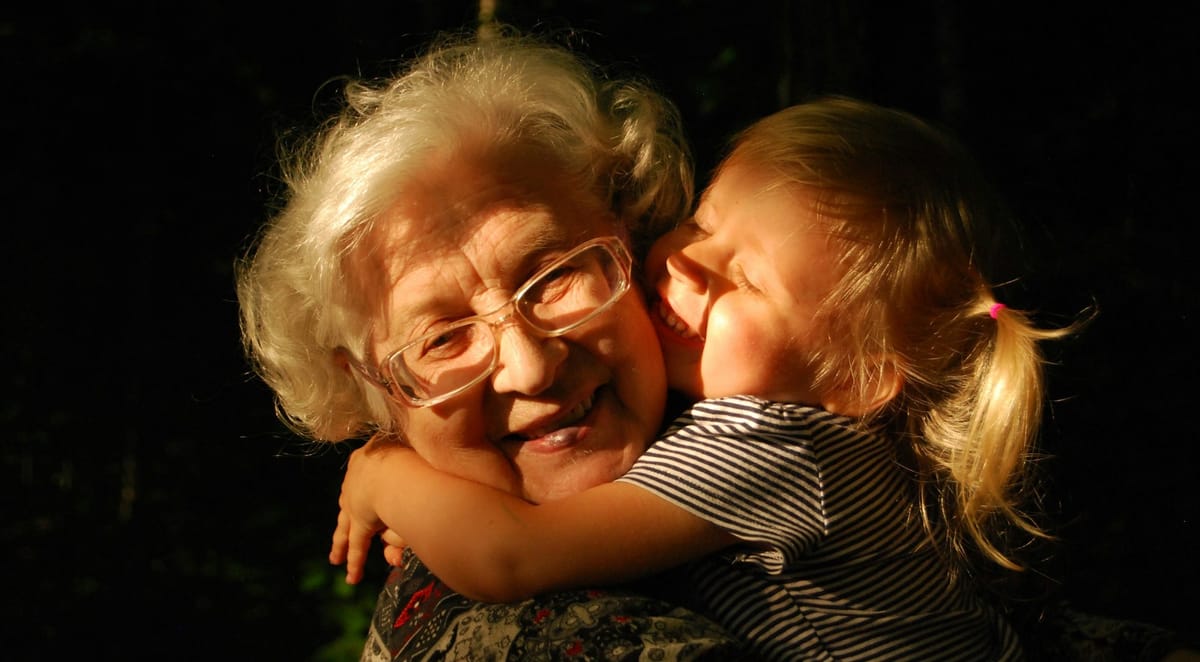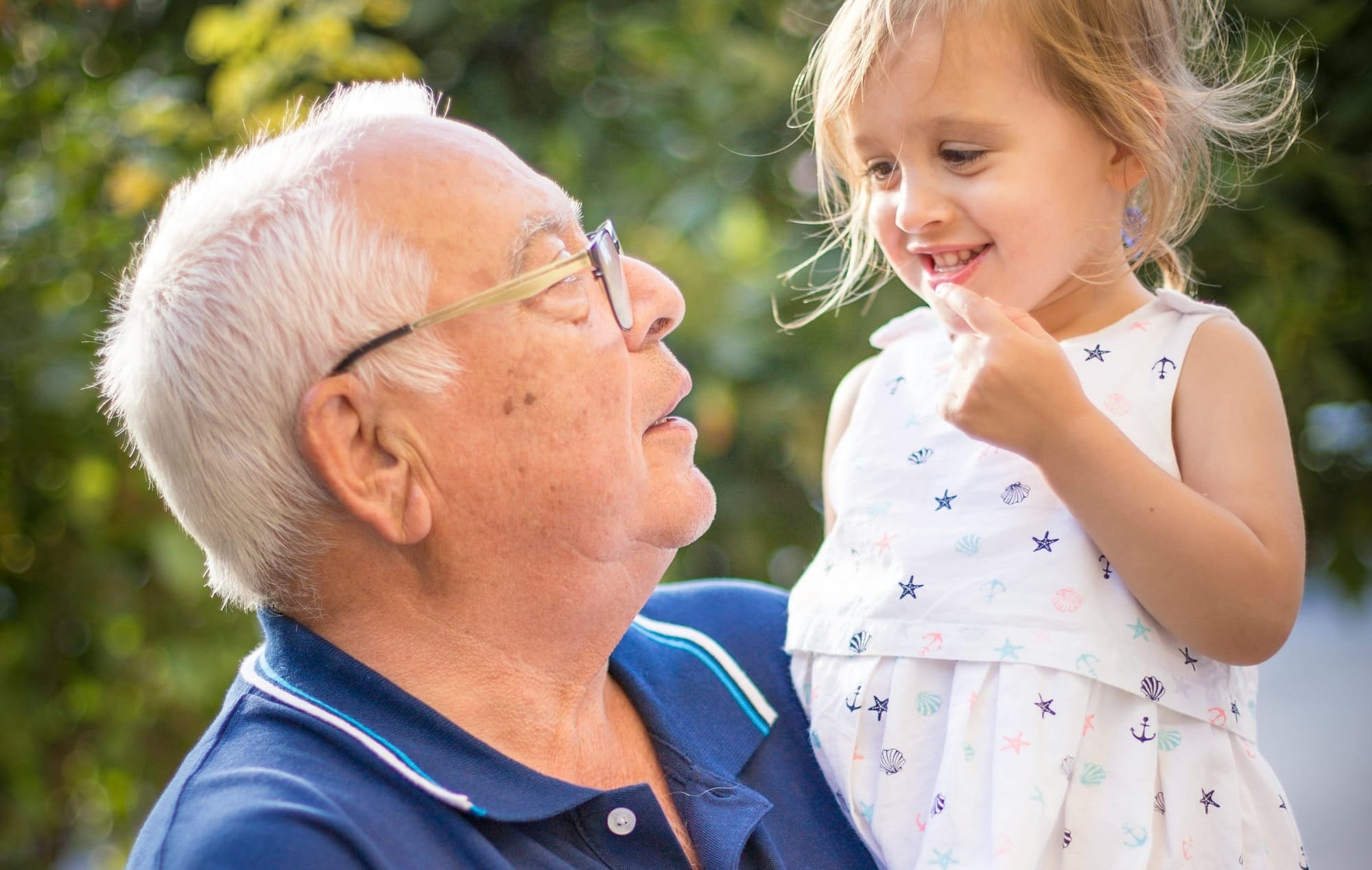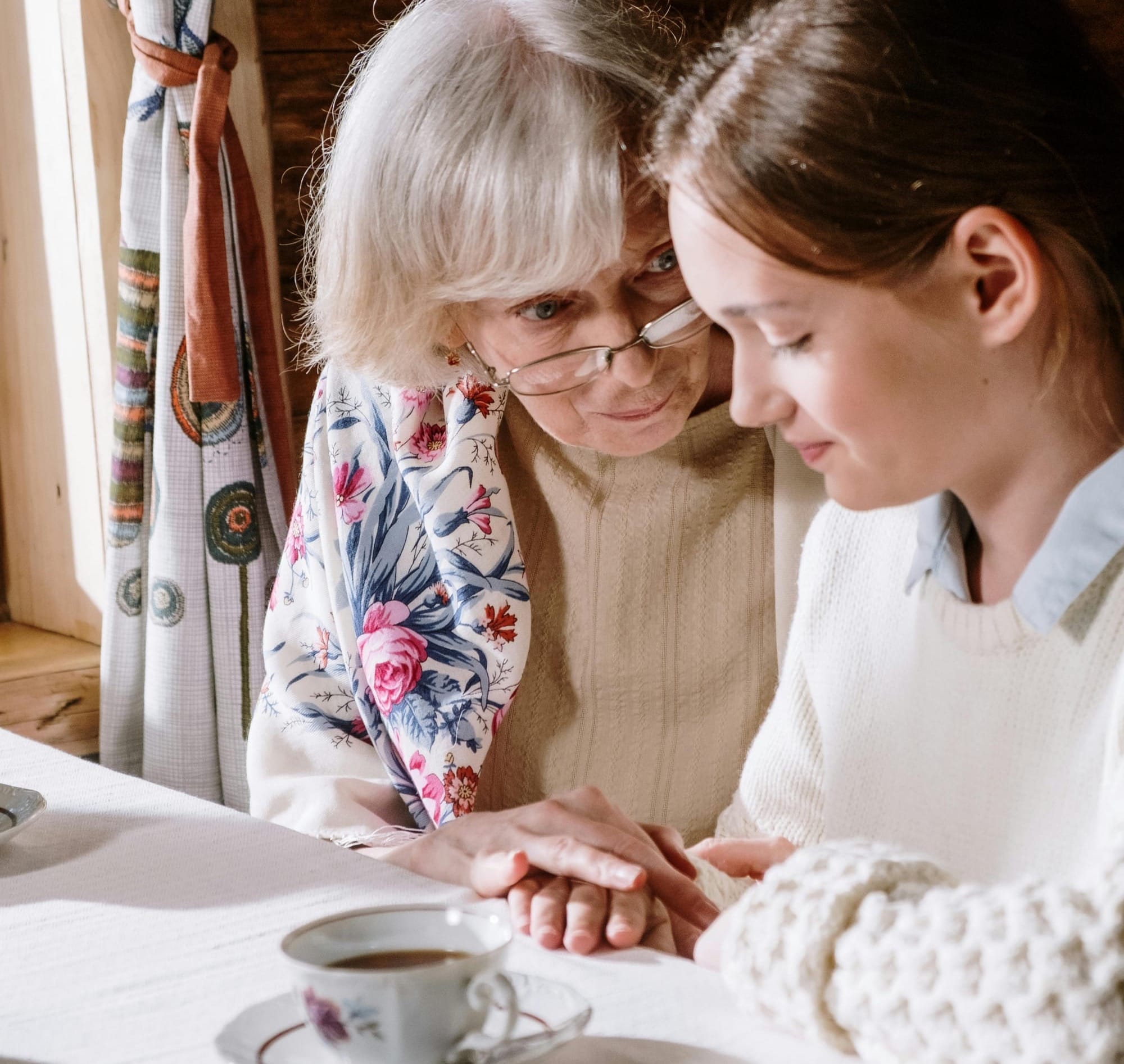Thoughts: Love, connection, and body slams

When one of our grandsons was younger, he showed his love for me by running at me full tilt and slamming into me. Another grandson prefers not to be hugged or kissed, but he will cuddle close while we do a puzzle together. A third, when small, would sit on my lap and blow kisses. I love(d) all these expressions of love (even the body slams), and I responded with my own gestures of love toward them: serving food they enjoy, playing games, listening. In fact, the more I think about it, the more I realize that these examples are tiny facets of the overall treasure of our relationships, and how many ways there are to build and appreciate those bonds.
Bonds between grandparents and grandchildren share something in common with loving relationships generally, and particularly with parent-child bonds—but there are also differences that make grandparent-grandchild attachments special. Philosopher Eleonore Stump, explaining the view of Thomas Aquinas, gives a starting-point description of love: “…love requires two interconnected desires: (1) the desire for the good of the beloved, and (2) the desire for union with the beloved.” In other words, for the feeling or attitude you have towards someone to count as love, you need to want their well-being (their “good”), and you need to want “union”—or, less dramatically, a connection or relationship—with them. There are all kinds of ways to expand, quarrel with, adapt, etc., this description (there’s a whole branch of philosophy devoted to doing this!) But I’ll just add a couple more points I think are part of love between grandparents and grandchildren: In a loving relationship (as opposed to unrequited love) the desires are a two-way street—the two with the loving relationship desire each other’s well-being, and they desire connection with each other. And in a loving relationship, the desire alone isn’t enough: it’s actions that show that the person cares.

Desiring well-being
Even a little grandchild can care for his grandparent’s well-being. One day I hurt my back when I was out building a snow fort with a three-year-old grandchild (the one who loved me with body slams)—one of those times when a familiar motion surprises you with a muscle spasm, and suddenly you can’t bend over, or sit, or keep shoveling snow. My grandson understood immediately that things had changed, and he began to help me. We stayed outside to play, but I couldn’t bend over to get his mitten, or his hat, or his toy snow shovel—so he did it for me. When we came inside, he climbed onto a chair so I could help him with his boots. He picked up the marbles that scattered from the game we were playing. And finally—sweetest of all—when I decided I had better lie on my back for a while, with a pillow under my head, he got a pillow and lay down next to me. His “resting” also included repetitive straight leg lifts that would have impressed a Pilates instructor, but the empathy and affection of the gesture was unmistakable.
An experience like this is especially sweet because in an unequal relationship, like parent-child or grandparent-grandchild—where the elder has experience and knowledge on their side and the younger doesn’t—one doesn’t expect the caring for each other’s well-being to be equal. Early on, the older person is doing the work of caring for the younger one; the pattern may flip as both parties add years. It’s one characteristic of grandparent-grandchild relationships, then, that most of the desire—and the responsibility—for fostering the loved one’s well-being lies with the elder and not as much with the younger.
Grandparents have innumerable ways to express their concern for their beloved grandchild’s well-being. My maternal grandmother delighted us with caramels and cookies. My maternal grandfather taught us attention—to birds, plants, gardens—through walks on which we observed, sketched, and appreciated together. You might like best to craft, laugh, read, or travel with your grandchildren.
The grandchild, meanwhile, may be expressing love in many ways, but the grandparent may need the additional skill of recognizing those expressions when they aren’t obvious. For example, it would have been easy to mistake my grandson’s body slams as mischievous or even mean. Actually, he was showing his trust that the slam would be accepted, laughed at, and maybe result in a quick hug. Or I could take another grandson’s rejection of hugs as lack of affection—but his desire for other kinds of togetherness belies that.
As in adult relationships, however, there can be mismatches in “love language.” For example, my paternal grandmother showed her love through giving gifts. As a small child, I enjoyed this. But as a teen, I came to see it as an empty practice. If that had been her only expression of love, we might have missed out on a relationship. But she offered love in many other ways, such as cooking and sharing rich foods (think scrambled eggs with cream, minute steaks, and a cheese Danish for breakfast), and strongly supporting my academic pursuits. So when she was dying of metastasized cancer in a nursing home, our relationship was such that I showed my love for her by being with her and holding her as she vomited. If there’s a lesson here, maybe it’s that expressing love in varied ways can help build relationship by bridging mismatches in love language.

Desiring connection
Looking at the reality of how grandparent-grandchild relationships evolve, grandparents need to be prepared that the desire for connection with the grandchild is likely to be more one-sided as the child grows into their teen years. How can a grandparent compete with all the loves and excitement that open to a teenager? Even parents, typically more tightly bonded the child, often experience a loosening or major change in the relationship as the child enters their teens.
Still, grandparents can, as my grandparents did, maintain their own desire for connection with the child as a stable base for the growing child to return to—a place where the child/teen/young adult knows that they are special, wanted, and important. Grandparents also, like parents, can embrace the chance to love the child unconditionally: loving them not because they achieved something, or because they have some quality that makes them loveable, but simply because they are your grandchild. In this way, the grandparent’s love can both revel when the child does well and survive the child’s mistakes or difficulties. Hopefully the grandchild’s love can be as gracious in return as they mature.